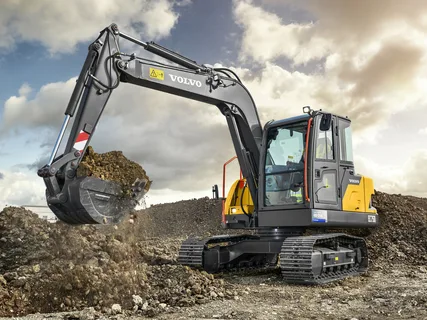When it comes to workplace safety, there’s no room for compromise. That’s why having a dedicated Workplace Safety Advisor is crucial for any business. In this blog, we will take a deep dive into the role of a Workplace Safety Advisor and understand their key responsibilities. We’ll also explore the importance of having a Safety Advisor in your organization and how they contribute to business success.
Additionally, we’ll discuss the necessary skills and knowledge that make an effective Safety Advisor and the risks associated with not having one. Lastly, we’ll provide you with valuable insights on selecting the right Safety Advisor for your business and the consequences of neglecting workplace safety. Stay tuned to unlock the importance of a Workplace Safety Advisor and ensure the well-being of your workforce.
Table of Contents
Understanding the Role of a Workplace Safety Advisor
A workplace safety advisor plays a vital role in helping businesses identify and mitigate potential hazards. They are responsible for developing and implementing safety policies and procedures to ensure compliance with regulations. Additionally, workplace safety advisors conduct regular inspections and audits to identify areas for improvement. They also provide training and education to employees on safety protocols and best practices, often through email. By doing so, they contribute to preventing accidents and injuries, reducing liability, and maintaining a safe work environment.
Key Responsibilities of a Safety Advisor
Safety advisors, also known as safety representatives, play a vital role in maintaining work health and safety in organizations. They conduct regular safety inspections, developing and implementing policies and procedures to ensure compliance with regulations. Investigating accidents, they analyze root causes and recommend corrective actions. Collaborating with management and employees, safety advisors promote a safety culture and raise awareness about safety practices. By staying updated on industry standards, they provide guidance and ensure continuous improvement in workplace safety. Workplace safety advisors are essential for protecting employees’ well-being and preventing occupational hazards.
The Importance of a Safety Advisor in Business
A safety advisor in the workplace plays a vital role in ensuring the well-being and protection of employees. They assess risks, develop safety policies, and implement measures to prevent accidents and injuries. By prioritizing safety matters and having a safety advisor, businesses can comply with legal regulations, avoiding costly penalties and lawsuits. Safety advisors provide training, empowering employees to prioritize safety. Their presence promotes a positive safety culture, leading to increased productivity and employee morale.
How do Safety Advisors Contribute to Business Success?
Safety advisors play a crucial role in business success by identifying and mitigating workplace hazards, ensuring compliance with safety regulations, and creating a safe work environment. They also help reduce worker compensation claims and insurance costs.
Ensuring Compliance with Health and Safety Regulations
Workplace Safety advisors play a vital role in assisting businesses to adhere to health and safety regulations, preventing legal complications. By ensuring compliance with these regulations, a safe and healthy work environment can be established for employees. Safety advisors provide valuable guidance on implementing safety measures that minimize the risk of accidents and injuries, which can be obtained through an approved training course. This compliance also helps businesses cultivate a positive reputation, attracting customers and investors. Furthermore, prioritizing safety enables businesses to mitigate productivity losses due to accidents or safety-related issues.
Promoting a Safe Working Environment
Promoting a safe working environment is crucial for businesses to protect the well-being of their employees and maintain a positive reputation. Safety advisors play a vital role in achieving this goal by developing and implementing safety policies and procedures, including the use of personal protective equipment. They conduct regular inspections to identify potential hazards and provide necessary training and education on safe work practices. By ensuring compliance with safety regulations, advisors help create a culture of safety and prevent workplace accidents. Safeguarding employees and the organization’s interests necessitates the expertise of a safety advisor.
Implementing Effective Safety Protocols and Procedures
Implementing effective safety protocols and procedures is essential for maintaining a safe work environment. Safety advisors, with their expertise in risk management and occupational health, play a crucial role in developing and implementing these protocols. By proactively identifying and addressing potential hazards, safety advisors help minimize workplace accidents and injuries. They also ensure that businesses comply with legal and regulatory requirements, minimizing the risk of penalties and liabilities. Moreover, an experienced management team that includes effective safety protocols enhances employee morale, job satisfaction, and overall productivity.
What Makes an Effective Safety Advisor?
An effective safety advisor possesses a deep understanding of workplace safety regulations and best practices, including HSA. They excel at identifying potential hazards and developing strategies to mitigate them. Effective communication skills are essential for conveying safety information to employees. Additionally, proactive evaluation and continuous improvement of safety measures are key qualities of an effective safety advisor.
Necessary Skills and Knowledge
To be an effective safety advisor, a deep understanding of local safety regulations and industry standards is essential. Strong communication skills are necessary to convey safety protocols effectively to employees. Problem-solving skills are crucial to identify and address potential safety risks. Knowledge of best practices for hazard identification and risk assessment enhances a safety advisor’s effectiveness. Staying updated on the latest safety trends and technologies, including consulting with a vet for animal safety, helps a safety advisor provide effective guidance.
Required Training and Experience
A safety advisor should possess the necessary certifications and have completed relevant safety training. It is crucial for them to have experience in conducting risk assessments and implementing safety protocols. Knowledge of local safety regulations and industry-specific guidelines is also essential. Effective communication skills are necessary for safety advisors to effectively educate and train employees. Continuous professional development ensures that they stay up to date with the latest safety practices.
The Ability to Influence and Motivate Others
An effective safety advisor possesses the ability to influence and motivate others, instilling a culture of prioritizing work health and safety within the organisation. By effectively communicating the importance of safety measures, they drive positive change within the organization, gaining buy-in and cooperation from employees at all levels. With strong leadership skills, safety advisors empower employees to take ownership of their own safety and that of others, creating a safer work environment.
Can a Business Manage Without a Safety Advisor?
Is it possible for a business to function without a safety advisor? While it may be possible, it is not recommended. A safety advisor plays a crucial role in ensuring compliance with health and safety regulations, identifying potential hazards, and implementing preventive measures. Having a safety advisor can help reduce workplace accidents and minimize legal liabilities.
Risks Associated with Lack of Professional Safety Advice
Without the guidance of a safety advisor, businesses can be oblivious to potential hazards and fail to implement necessary safety measures. This lack of professional safety advice increases the risk of workplace accidents, injuries, and legal liabilities. Safety advisors, such as safety advisers, play a vital role in identifying and mitigating risks, ensuring compliance with safety regulations, and facilitating the return of injured workers. Businesses without a safety advisor may face higher workers’ compensation costs and increased absenteeism. By investing in a safety advisor, organizations demonstrate their commitment to employee well-being, ultimately improving productivity and morale.
Selecting the Right Safety Advisor for Your Business
Selecting the right safety advisor for your business is crucial in ensuring a safe and healthy work environment. When hiring a safety advisor, it is important to look for key qualifications and certifications related to work activities. A safety advisor plays a vital role in reducing workplace accidents and injuries by identifying and addressing safety issues. Ongoing training and communication with the safety advisor are essential for effective implementation of safety procedures. Consider examples of successful workplace safety programs implemented by safety advisors to make an informed decision.
Criteria for Choosing a Safety Advisor
When selecting a safety advisor for your organization, it is important to consider various criteria. Start by looking for an advisor with relevant certifications and qualifications in the field of work health and safety. Their experience in your industry and knowledge of safety regulations, such as the Occupational Health and Safety Act in Australia, should also be assessed. Additionally, evaluate their communication skills, track record in implementing safety programs, and ability to understand your business needs.
Interview Questions for Prospective Safety Advisors
- – Inquire about their experience in developing and implementing safety protocols.
- – Ask about their familiarity with relevant safety regulations and industry standards.
- – Discuss their approach to conducting safety audits and inspections.
- – Ask about their experience in providing safety training to employees.
- – Inquire about their ability to identify and mitigate workplace hazards.
What are the Consequences of Not Having a Safety Advisor?
Without a safety advisor, businesses put themselves at risk of workplace accidents, legal consequences, and decreased employee morale. Implementing effective safety protocols becomes challenging, endangering employees and the business.











